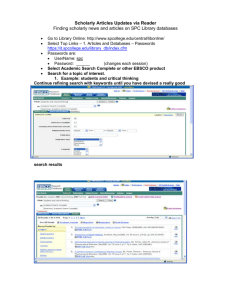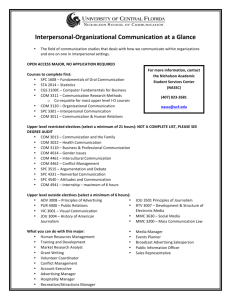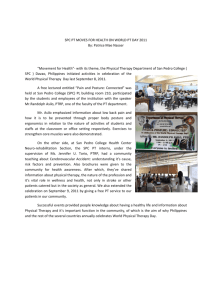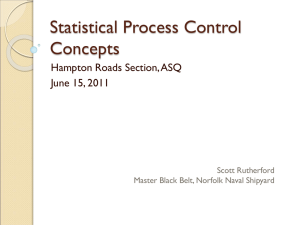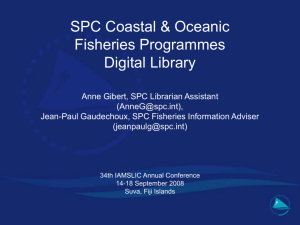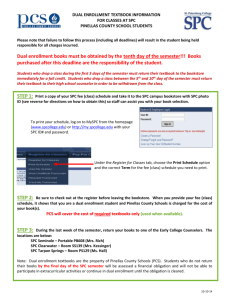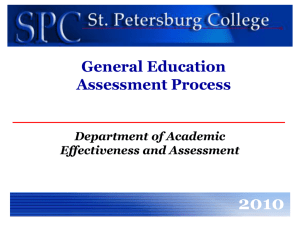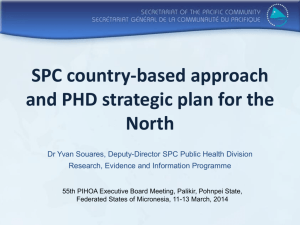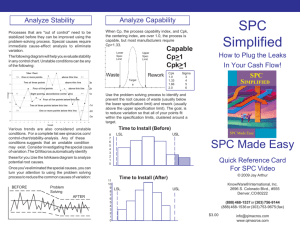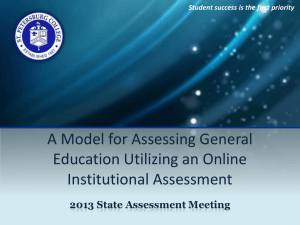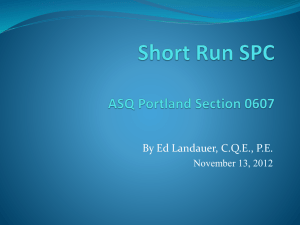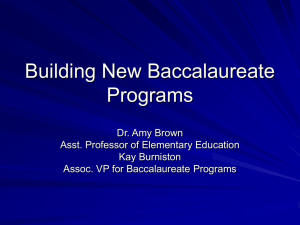The Evolution of Business Intelligence at SPC: One Year Later
advertisement
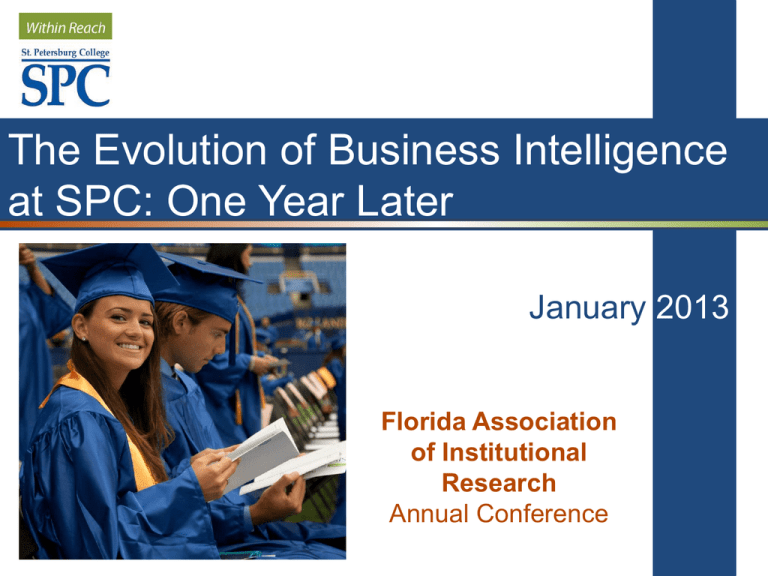
The Evolution of Business Intelligence at SPC: One Year Later January 2013 Florida Association of Institutional Research Annual Conference January 2013 James Coraggio Associate VP, Institutional Effectiveness, Research, and Grants Dan Gardner Coordinator, Institutional Research and Reporting Presenters Institutional Research and Effectiveness St. Petersburg College P.O. Box 13489, St. Petersburg, FL 33733 (727) 712-5237 FAX (727) 341-5411 2 January 2013 SPC - established in 1927 9 Campuses in Pinellas County First FCS college to offer baccalaureate degrees; 1,061 (2011-12); cumulative 5,179 degrees (2002-12) 2011-12 FTE: 22,350 2011-12 Graduates: 6,003 Fall 2012 credit enrollment: 33,232 (unduplicated) SPC Quick Facts 3 January 2013 FAIR presentation 2011 Using Business Intelligence to Improve Student Success http://www.spcollege.edu/central/AE/PowerPoints/FAIR%202012%20%20Business%20Intelligence%20FINAL.pptx Background 4 January 2013 This presentation will describe: 1) Where we were… 2) Where we are .. 3) Where we will go… Today’s Goals 5 January 2013 • Two-to-three weeks to complete a data request • Discussions became stale • Arguments over the data definitions • New questions once data is received take another two-tothree weeks to get answered Where we were… 6 January 2013 • SPC exemplified the ‘data-rich, informationpoor’ institution. • Staff need timely information for decisions to maximize student success. • SPC needed to leverage data from across the College by linking multiple data systems and elements in one reporting interface. Why was BI a priority at SPC? 7 January 2013 SPC needed: – timely, relevant, and valid information at the college, campus, and program levels, – in an easy-to-interpret format to support evidence-based decision-making, – and drive performance improvement. Why was BI a priority at SPC? 8 January 2013 Step 1: Acknowledge that data in its purest sense is not very useful. Step 2: Design a tool that defines, aggregates, and organizes the data into useful and relevant information for the stakeholders. Step 3: Provide end-user training to assist them in correctly interpreting and using information properly. Step 4: Consistently remind all end-users that data and information can be powerful, but it is only the start of the conversation. Developing BI 9 January 2013 • Allows college employees the ability to quickly access information required to make decisions to improve student success. • Designed to provide standardized information to endusers and key stakeholders with the ability to look at data measures through multiple views. • Measures can be rolled up and viewed at the aggregate institutional level or an end-user can ‘drilldown’ and view the same data measures at the campus or program level. Where we are now… 10 January 2013 Executive Partnership Development Administrative Dissemination Student Success Partnership Advisor Dissemination Partnership for Integrated Solutions Timeline Executive Dissemination 2011 Refinement Partnerships for Specialized Solutions Innovation Transfer 2012 Staff Dissemination Refinement 2013 2014 11 January 2013 • Active users, n = 204 • New users in process = 60 (primarily academic advisors) • Training completed, headcount – Level 1 trained = 175 – Level 2 trained = 82 – Total number of persons trained (level 1 & 2) = 257 • Type of users: Executive Team, Provosts, Deans, Program Directors, Functional Administrators, Advisors Status 12 January 2013 BI Student Cube Structure 13 January 2013 Culture of Inquiry We encourage a data-driven environment that allows for open, honest dialogue about who we are, what we do, and how we continue to improve student success. Transparency We embrace openness in communication by providing access to college processes and procedures, expenditures, institutional effectiveness, and student success rates. http://www.spcollege.edu/mission/ Changing the Culture… 14 January 2013 The most important element of the SPC Pulse philosophy has been end-user empowerment. Teaching them how to fish… 15 January 2013 Training Schedule, January & February 2013 • Level 1; 1/8, 1/25, 2/5, 2/22 • Level 2; 1/8, 1/25, 2/5, 2/22 • Update for Deans, 1/17 @ Deans meeting • Advisor training @ Tarpon Springs: 1/25 • Update for Associate Provosts: 1/29 • Advisor training @ Clearwater: 2/15 Sample Training Schedule 16 January 2013 • Building competence among executive and academic leaders • Managing Accelerated Expectations and Enthusiasm • Ensuring security/privacy • Documenting while building • Limited Resources • Tailoring specialized solutions Challenges 17 January 2013 • More robust cohort data • Prediction information (Predictive Analytics) • Human Resources data • Further developed Finance data Where we want to go… 18 January 2013 • • • • Resources, Resources, Resources! Leadership support Cross functional development team Financial support for technology/ infrastructure requirements • End-user buy in and involvement in the development • Managing expectations Lessons Learned 19 January 2013 Questions? 20
